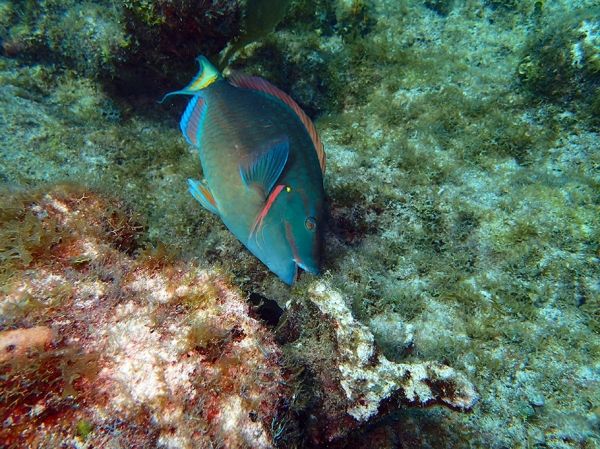Selective fishing can disrupt the delicate balance maintained between corals and algae in embattled Caribbean coral reefs. Removing large parrotfish, which graze on algae like large land mammals graze on grasses, can allow the algae to overtake the corals, with potentially dire consequences for reef health. New experimental research suggests that maintaining a healthy size distribution of parrotfishes in a sea floor ecosystem through smart fishing practices could help maintain reefs that are already facing decline due to climate change.
A paper describing the research by scientists at Penn State and the University of California, Santa Barbara appears online in the journal Ecological Monographs.
“Coral reefs are incredibly beautiful and intrinsically valuable, but they also protect thousands of miles of coastline and provide habitat for astonishing biodiversity that is the major source of protein for nearly a billion people worldwide,” said Andrew A. Shantz, Eberly Research Postdoctoral Fellow at Penn State and the first author of the paper. “Understanding how fishing impacts coral ecosystems will help us to protect this invaluable resource.”
The researchers used survey data on parrotfish populations from 282 sites across the Caribbean and compared these sites to protected reefs in the Florida Keys to assess how parrotfish populations are impacted by fishing. Surprisingly, the biomass—the total mass of parrotfish in a region—was not impacted by fishing. Instead the distribution of fish sizes changed. Fishing selectively removes large parrotfish, but the biomass is maintained because many more small parrotfish are able to occupy the region.
Read more at Penn State
Image: A stoplight parrotfish feeding on algae. New research shows that selective fishing of large parrotfish can disrupt the balance between corals and algae in embattled Caribbean reefs. Credit: Andrew Shantz, Penn State


